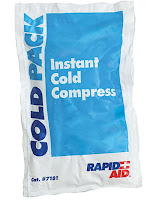What is Obesity?
Tuesday, August 2, 2011While I am on a brief holiday in Berlin, I thought I’d rerun a few earlier posts that discuss the issue of measuring obesity and how such measures may or may not be helpful in obesity management – as many readers may not have seen these posts before, comments are very much appreciated.
The following was first posted on July 28, 2008
 Don’t worry – I am not going to take off on a discussion about whether obesity is a disease or “simply” a risk factor. I am also not going to discuss again obesity definitions – anthropometric or otherwise.
Don’t worry – I am not going to take off on a discussion about whether obesity is a disease or “simply” a risk factor. I am also not going to discuss again obesity definitions – anthropometric or otherwise.
Today’s post is simply about an analogy that may help sharpen our clinical thinking around excess weight.
Think of someone who has an elevated plasma creatinine level (a marker of kidney failure) – the elevated creatine definitely tells us that there is something “wrong” with the kidneys, but that’s about it. From the creatine level alone we can certainly tell that the kidneys are failing in their excretory function, but we cannot tell what is causing the kidneys to fail – is it a pre-renal, intra-renal or post-renal problem? We can probably list a 100 reasons why kidneys could fail and obviously the treatment (apart from some very general principles) will very much depend on the cause, i.e. the actual diagnosis.
In many ways, one can look at excess body fat simply as a sign or symptom of the fact that there is a something “wrong” with energy homeostasis. The excess body fat tells us nothing about what the problem is – sure, it’s either excessive food intake or reduced energy expenditure – but that is like saying that the creatinine levels are elevated because the kidney is not excreting properly. I can think of a long list of reasons or factors that would contribute to excessive caloric intake or reduced energy expenditure: sociocultural factors, psychological factors, biomedical factors – figuring out what exactly is causing the energy imbalance is the real problem.
Only when we find what is causing the excessive intake will we have made a diagnosis of what is causing the problem – a few specific examples could include: poor meal planning, peer pressure, hedonic overeating, depression, obesogenic medications, binge eating disorder, defective satiety signaling, etc. The point is that till we know what is causing the overeating, we can’t fix it, which means we will have little success in treating the weight problem and will be limited to a “symptomatic” approach – just eat less!
Similarly, when the problem appears to be lack of activity, again the question is what exactly is causing the problem. Obviously if the problem is lack of time our approach will hopefully be very different than if the problem is back pain or lack of motivation (a possible symptom of sleep apnea, exhaustion or depression). A “symptomatic” but useless approach would be to simply recommend 10,000 steps. No better than offering an ice-pack to someone with a fever.
Just as the term “kidney failure” only tells us that there is something “wrong” with the kidneys the term “obesity” only tells us that there is something “wrong” with energy homeostasis.
In itself, neither the term “kidney failure” nor “obesity” is a real diagnosis – they are only helpful if they prompt further investigation into what might have or is still causing the problem. Only when we find the cause will we be on our way to solving the problem.
AMS
Edmonton, Alberta


